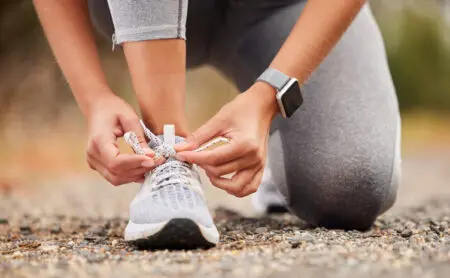Do you want strategic insight into your global sustainability messaging?
The much-anticipated Global Outlook on Sustainability: A Consumer Study 2024-25 is now available to order. Covering 10,000 respondents from 10 leading economies, this report gives insights and inspiration on how best to position and prioritise your brands’ products.
Download the executive summary for a detailed overview or order the Global Sustainability Report today.
Consumers’ Need for Brand Transparency is More Apparent Than Ever
In 2023, the EU evaluated textile waste within the Waste Framework Directive and proposed that in just a few years, producers may become responsible for the entire lifecycle of their products. This shift will place pressure on brands to review their decisions at manufacture and improve awareness of the detrimental impact certain materials have on the planet. This development comes at a critical time, as consumers’ need for brand transparency is more apparent than ever. We found that over half of German consumers do not trust brands to be honest about their environmental impact, highlighting the urgency to rebuild consumer trust.
In protest of our throwaway culture, we have seen several initiatives to align footwear brands, in particular, with the fundamentals of a circular economy. In light of this, we explore what steps European footwear retailers are taking to reduce their carbon footprint.
Blending Sustainability and Desirability
One example of exemplary sustainability is the Parisian footwear brand, Veja. For such a large brand, Veja has taken impressive steps to improve its impact on the earth. They use low-impact materials, including some recycled, for their sneakers, they offer end-of-life recycling to consumers and they utilise Leather Working Group Gold certified tanneries. With the majority of consumers still prioritising brand over sustainability, Veja has successfully combined its desirability in the fashion world with uncompromising eco-friendliness.
Additionally, Adidas by Stella McCartney’s range of winter activewear boots are made from recycled polyester. Here, they have successfully taken the entire lifecycle of their product into account by responsibly monitoring their suppliers and the impact of the materials used. Adidas, as a brand, further contributes to the goal of ending plastic waste with dedicated ranges of shoes. These offerings feature designs made from ocean plastic, recycled materials, and eco-friendly vegan alternatives.
Uplifting Hidden Gems
Often, embarking on sustainability efforts from the ground up can be more realistic than turning an established business model on its head. This is why collaborating with and uplifting smaller brands often creates a more tangible and meaningful impact. Savana, a sustainable Portuguese footwear company, launched a new brand, Contagious, made entirely of 100% recyclable materials. The outside of the shoe is made of cork, and recycled mesh and the entire lining is made of 100% organic cotton. Zouri, another Portuguese-based footwear brand – which is known for using plastic waste collected from the ocean in its productive process – is using apple waste in its products. The brand has launched a new range of children’s footwear using apple peel as a material to make shoes.
GROUNDTRUTH is a UK-based brand founded by three travel enthusiasts inspired to make a difference through the protection of the planet and its people. All GROUNDTRUTHS products are made by a Bluesign-certified family-run manufacturer in Jakarta, Indonesia, where gender pay equality, safe working conditions and access to training, childcare and healthcare are non-negotiables. In regards to the planet, their product base is made entirely of 100% recycled materials and they offset the entire carbon footprint through partnership with Wildlife Works and their Mai Ndombe project, located in the Democratic Republic of the Congo. This initiative protects over 740k acres of the world’s second-largest rainforest, contributing significantly to global conservation efforts.
Retailers Need to Look at Rental and Second-Hand
Both buying and selling second-hand, and renting, tie in with Mintel’s Trend Why Buy. These two channels of consumption are examples of how the circular economy is now penetrating many aspects of life. In addition, retailers could highlight the money-saving aspect of these models as the added value of a sustainable retail experience to consumers.
As part of any strategy to broaden and diversify the range of services they offer, specialist retailers should look at other ways in which their customers can acquire, use and dispose of footwear. In the UK, Gen Z is putting their twist on what ownership looks like with sustainability leading the way. Our 2023 UK fashion and sustainability report reveals that nearly a quarter of UK Generation Z consumers would rent fashion items in the future, while almost half of consumers aged 16-34 have bought second-hand fashion items in the last year. Meanwhile, peer-to-peer marketplaces, like Vinted, continue to reimagine what buying second-hand can look like, and brands have the opportunity to pre-empt the creation of peer-to-peer marketplaces that threaten their business by creating their own.
Looking Ahead with Mintel
Strong environmental credentials could well become a clear product differentiator across Europe. It should be noted that it could be quite a challenge to communicate the benefits and the overall sustainability initiative to consumers. To overcome this, retailers could offer various incentives to tap into the opportunity. With the issue of waste high on the agenda, they should be looking at how they encourage their customers to recycle unwanted footwear. One way they could do this is via a reward scheme (perhaps linked to a wider loyalty scheme). We’ve seen retailers like Schuh finding success with schemes that reward customers by exchanging unwanted items for vouchers that can be spent in-store.
Furthermore, specialist footwear retailers could look at creating areas in-store and online dedicated to sustainable footwear, so that customers can choose products based on their environmental preferences. For example, we’ve seen online giant Amazon launch an ‘eco-friendly’ shopping platform offering more than 40,000 sustainable products, initially in the US, but this has now been rolled out to Italy, France, Spain, Germany and the UK.
Align with the latest trends in consumer behaviour and explore our extensive Retail Market Research today.
Subscribe to our newsletter, Spotlight, to get free content and insights delivered directly to your inbox.




































